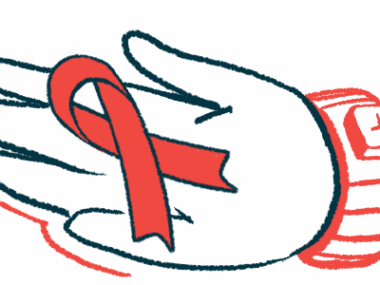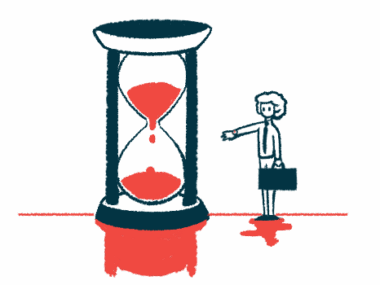Looking Back on 11 Years of Our Joyful Sorrow
Written by |

On occasion, I’ll page through the photo books my husband, Todd, made for me as Christmas gifts. I feel a sense of gratitude as I look back on all we’ve been able to do since his ALS diagnosis. Family game nights. Outings to sporting events. Family movie nights. Several vacations.
While I treasure the sweet memories on the pages and marvel at how our children have grown, I also recognize that trauma is intertwined with some of those memories. I have a delightful memory of visiting the Science Museum of Minnesota during a family vacation, but I also have the stressful memory of giving Todd a manual assist cough when he choked while eating at a restaurant at the Mall of America on that same trip.
On a walk in the field by our house, I listened to an episode of the public radio program “This American Life” called “Good Grief,” in which a man named Rob Delaney talked about the trauma and the grief of losing his 2-year-old son. The father discussed with the host how it’s helpful to tell the story of trauma in order to process it. The bereaved dad said he tells himself the story of his son’s death in simple terms as he walks around.
After listening to his story, I stopped walking and recorded a voice memo of the story of our trauma. I played it back. This is it in a nutshell:
“When Todd was diagnosed with ALS, we couldn’t believe it was real. He was 39. We had two little kids. This isn’t supposed to happen when you have two little kids.” (I pause to cry.)
“We sold our house to move near family, and we left our friends. It’s hard to make new friends when your life and worldview have been shattered.” (More sobbing.)
“Todd started falling, and I worried he’d hit his head. We tried to press on and do normal life, but it was hard. We’d go places, and I’d have to ask strangers to help me pull him up out of his manual wheelchair so he could get in the front seat of our van.” (I find the ways we fought to make normal life happen surreal.)
“Todd couldn’t sleep on his own because he couldn’t move. I was getting no solid sleep and was so exhausted. After two years of sleep deprivation, with no end in sight, I felt like I couldn’t go on. We started getting nighttime caregivers and sleep felt like a drug. The more I got, the more I wanted. When a nighttime caregiver canceled, I would start shaking, like I had PTSD.” (I don’t shake when we get a cancellation anymore. Now, if we don’t have a caregiver, he stays up until 3 a.m. so I can get a little sleep.)
“Todd started choking, and he couldn’t cough on his own. The PT taught me the manual-assist cough so I could save his life, but it was stressful.” (I sound matter-of-fact. This is our daily life.)
As I played back the story, I felt compassion for the woman whose voice held so much pain. It makes sense that I’m having a hard time with this. I cried when I talked about those early losses, but sounded stoic when talking about what we are currently dealing with. Is it possible to process trauma when you’re still in it? When there’s no stabilization and the losses keep coming? People sometimes ask me in passing how I’m doing. I usually shrug and reply, “We keep on keeping on. With ALS, it doesn’t get easier.”
As I look back at life with ALS over more than a decade, I celebrate the precious memories we’ve been able to make, and at the same time, I’m sad as I reflect on all the losses we’ve endured. We’ve watched Todd’s health decline, and life as we knew it slipped away.
Today, June 10, marks 11 years of our joyful sorrow.
***
Note: ALS News Today is strictly a news and information website about the disease. It does not provide medical advice, diagnosis, or treatment. This content is not intended to be a substitute for professional medical advice, diagnosis, or treatment. Always seek the advice of your physician or other qualified health provider with any questions you may have regarding a medical condition. Never disregard professional medical advice or delay in seeking it because of something you have read on this website. The opinions expressed in this column are not those of ALS News Today or its parent company, Bionews, and are intended to spark discussion about issues pertaining to ALS.






Lilian
Thank you for sharing
Jamie
Kristin, thank you for your honesty and vulnerability. Your story is beautiful and powerful and and full of the kind of love and commitment that this world needs more of.
Thank you and you and your family are in my prayers.
K Ramana Prasad
You are a very brave and kind woman, Kristin. May God give you more strength and stamina to pull you through your difficulties.